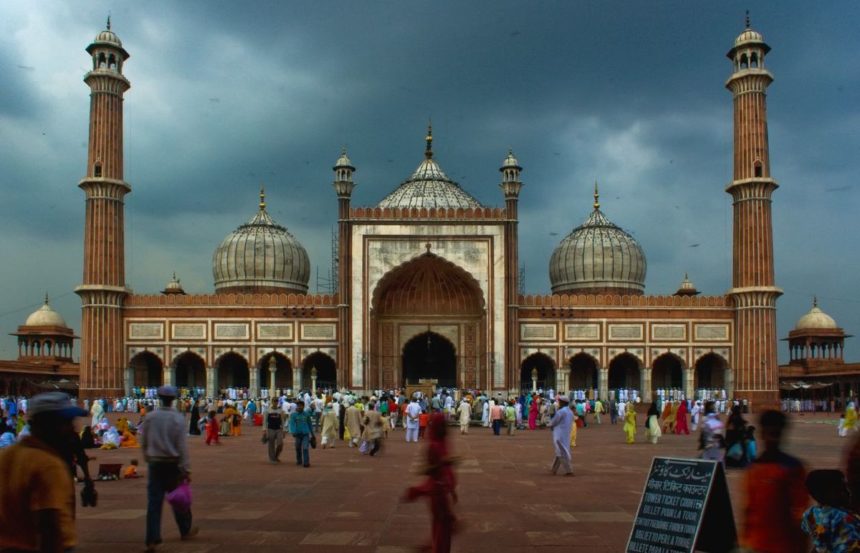– Maaz Ahmed Javed (M.Tech., AMU)
The history of Muslims in India spans nearly eight centuries of governance. This was the era when Muslims introduced new civilizations and cultures to the country. Muslim rulers, guided by the teachings of Islam, brought success and prosperity to the nation in all respects. However, gradually the fortunes of the Muslims began to decline, and a time came when every small and large nation turned hostile towards them. The primary reason for this decline was that Muslim rulers abandoned governance and became engrossed in indulgence and pleasure. Scholars and intellectuals, despite analysing the situation, failed to find a way forward. The situation worsened to the point where the decline was not limited to just one group; rather, a sense of decay and disintegration spread from scholars to the public. As a result, yesterday’s leaders became outcasts today. The decline of Indian Muslims has been ongoing for more than 150 years, a period during which many revolutions and upheavals have occurred. Numerous nations have experienced rise and fall. It is not that Muslims did not try to rectify the situation during this period. Various attempts were made in different ways, but despite great efforts, we have ended up at the same place once again. A brief overview of the situation of the Muslim community requires a detailed analysis. All thoughtful individuals should contribute to this discussion so that concrete steps can be taken for the welfare of the community. Several aspects will be discussed here.

Muslims ruled India for over 8 centuries
Every human desires power. They want to become the most powerful. Power here refers not only to physical, material, and military power but, most importantly, the power to have people follow us, listen to us, and obey us. If a person possesses this power, they can acquire all other types of power. This is what is called political power today. Based on this power, a person becomes a ruler and manages the social affairs of a community. However, political power is not something that can be borrowed or acquired temporarily. It is inherited through family and ethnicity or earned through physical and military strength. Some people gain it due to their capabilities, while others through cunningness. But for political power, certain qualities must exist in an individual, or else they will not be entrusted with such an important responsibility by Allah. For instance, if a person cannot manage social affairs even for a day, cannot solve the problems of people, but instead increases them, such a person may briefly hold political power, but it will not last long. Allah does not want corruption on His earth; He prefers order and. Therefore, it is not His way to grant power to a tyrannical ruler for a long period. Hence, anyone or any nation desiring political power must cultivate certain qualities within themselves. They must have the capability to prevent anarchy in society. The most suitable individual or group for this task is the one that Allah entrusts with this responsibility. However, the law of Allah regarding the Muslim community is somewhat strict. Allah considers the Muslim Ummah to be the best of communities, but this status also comes with certain responsibilities. When Allah announced this honour, He also said that Muslims have been sent for the benefit of others, to spread goodness and prevent evil. He also stated that Muslims are the middle nation, entrusted with the important task of bearing witness to mankind. The Qur’an is filled with references to this. Muslims, compared to other nations, carry this additional responsibility.

Have we achieved revival through traversing the existing path? If not, shouldn’t we be analysing and look at course-correction methods?
This is a daunting task, requiring relentless effort. It is not a goal achieved through temporary disturbances, election rallies, or vote politics. Unfortunately, our failure to understand the depth of this task has led to our downfall. The history of divided India tells us that since the beginning, we have been shortsighted in this matter. A 75-year experience should be enough to show us the way. We need to examine what the temporary disturbances and election manipulations have brought us. To this day, we remain dependent on someone else. We hold onto certain parties, thinking they are our saviours. We believe that if we elect a particular party, our problems will be solved, and our wounds will heal. The situation has become so dire that, in order to defeat a particular party, we tolerate all the evils of other parties. Since these parties view us as their obligation, they continue to oppress us. And we continue to be humiliated. We are accused of sectarianism and rebellion. Muslims fight among themselves, accusing one another of betraying the nation. This is the gift we receive during elections. But our problems show no signs of ending. In fact, the humiliation has reached such an extent that those who rule with Muslim votes do not even speak in our favour. So, why do we continue to do this? Are we searching for a shortcut to power and political influence? If so, this is our great mistake. We need to rid ourselves of internal corruption and prepare ourselves for the role that Allah has destined for us. Only then can we be victorious, because power and governance reflect a person’s inner character. Kingship, sovereignty, knowledge, and control over the world are all merely interpretations of a profound point of faith.

